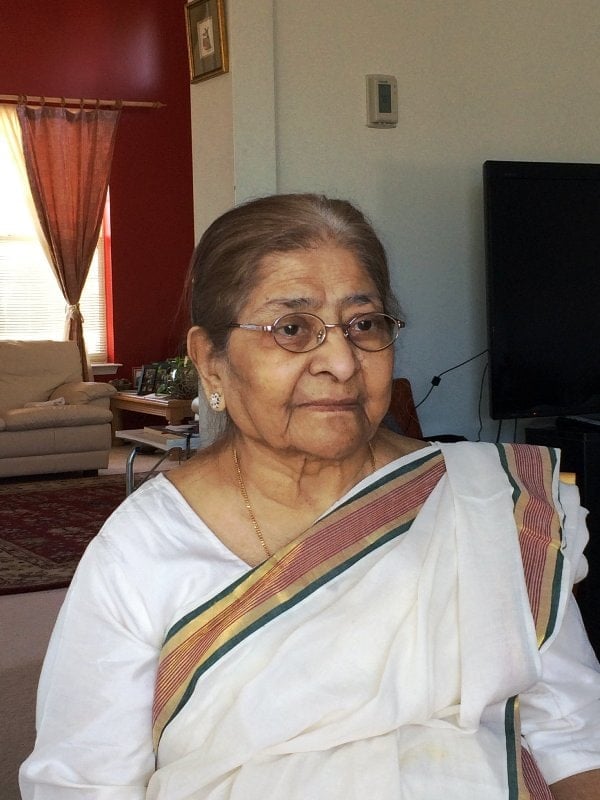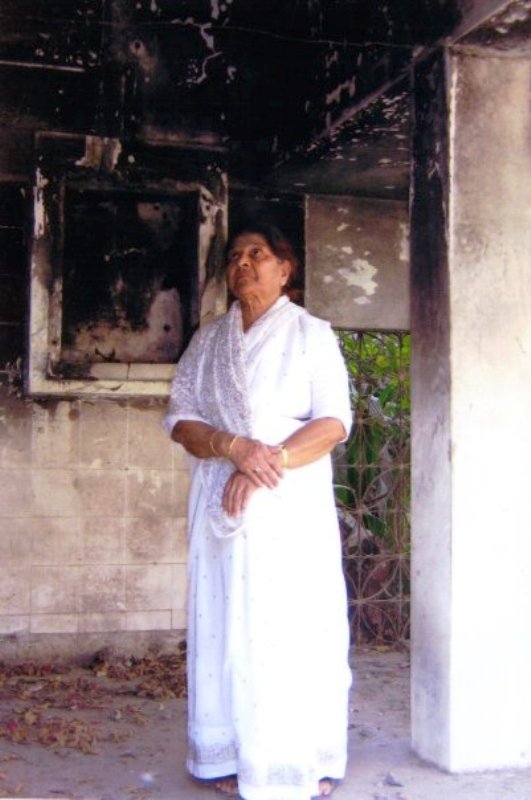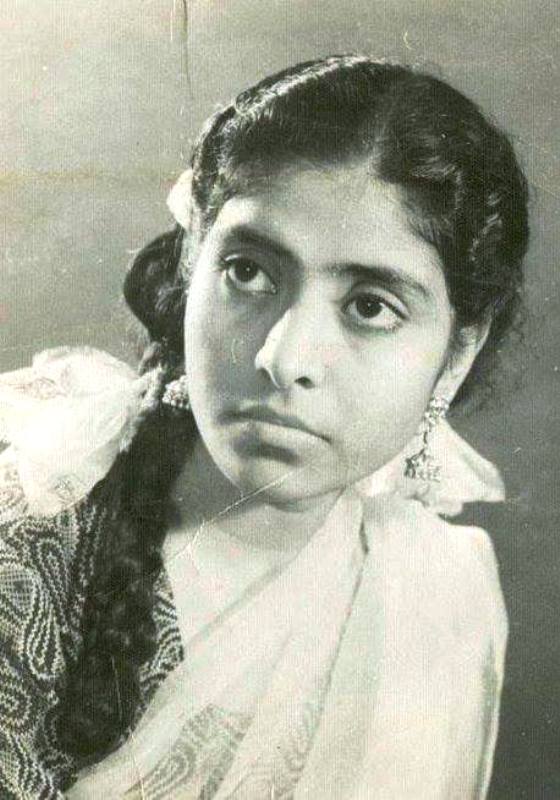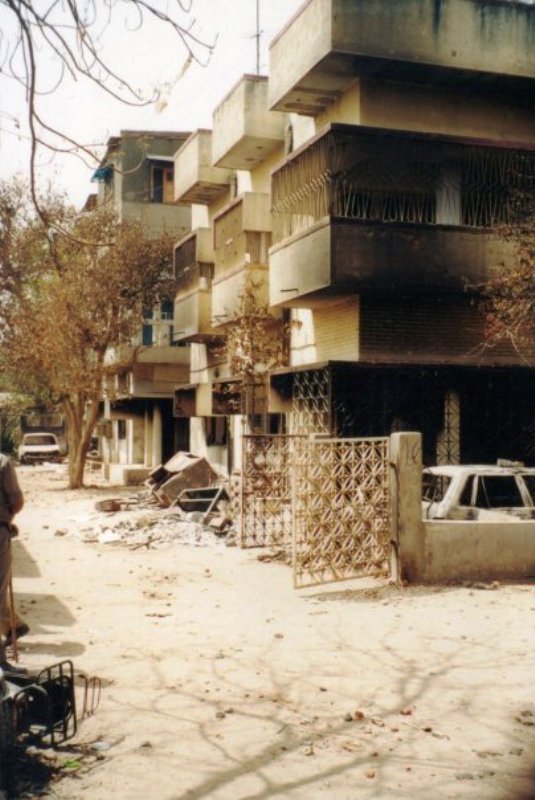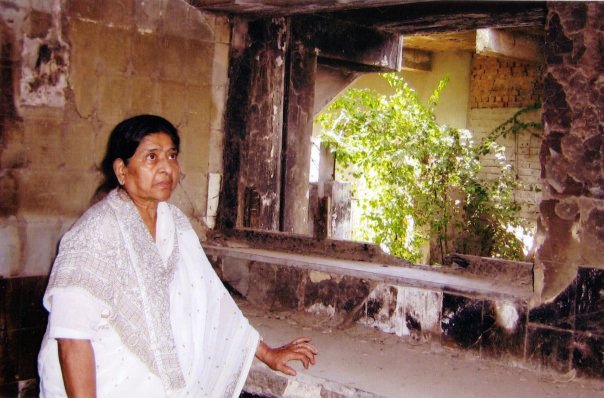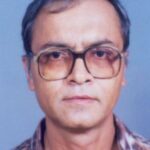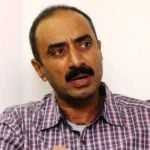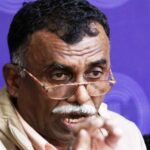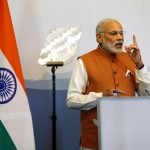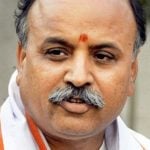Zakia Jafri Age, Husband, Children, Family, Biography & More
| Bio/Wiki | |
|---|---|
| Full name | Zakia Ahsan Jafri [1]Indian Kanoon |
| Profession | Homemaker |
| Famous for | • Being the wife of slain Congress MP Ehsan Jafri • Filing PILs against the alleged role of the Gujarat government in the 2002 Gujarat riots |
| Personal Life | |
| Date of Birth | Year, 1937 |
| Age (as of 2022) | 85 Years |
| Birthplace | Khandwa, Princely State of Indore, British India (now Madhya Pradesh, India) |
| Nationality | • British Indian (1937-1947) • Indian (1947-present) |
| Hometown | Khandwa, Madhya Pradesh, India |
| Religion | Islam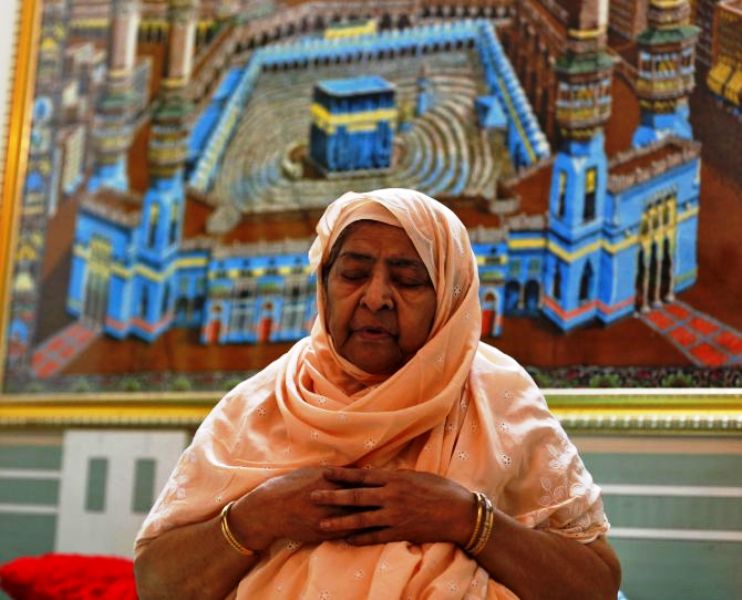 |
| Political Inclination | Indian National Congress |
| Hobby | Poetry |
| Relationships & More | |
| Marital Status | Widow |
| Family | |
| Husband/Spouse | Ehsan Jafri (politician, lawyer)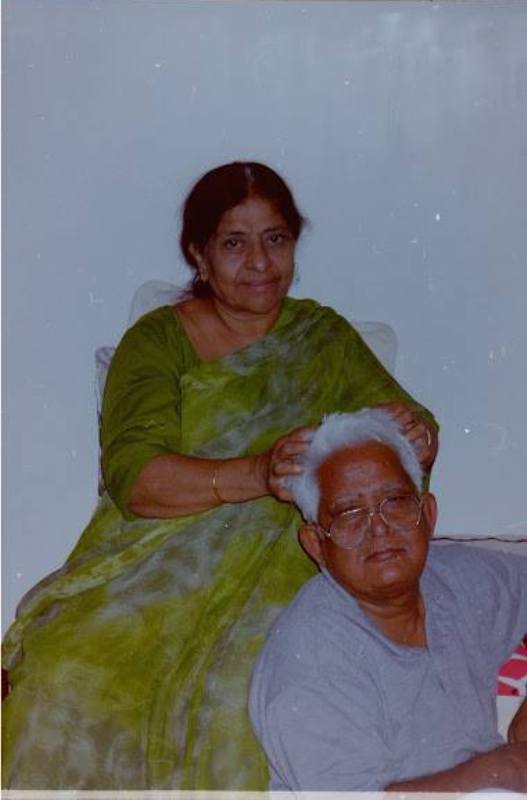 |
| Children | Son(s)- 2 • Tanvir Jafri (businessman) 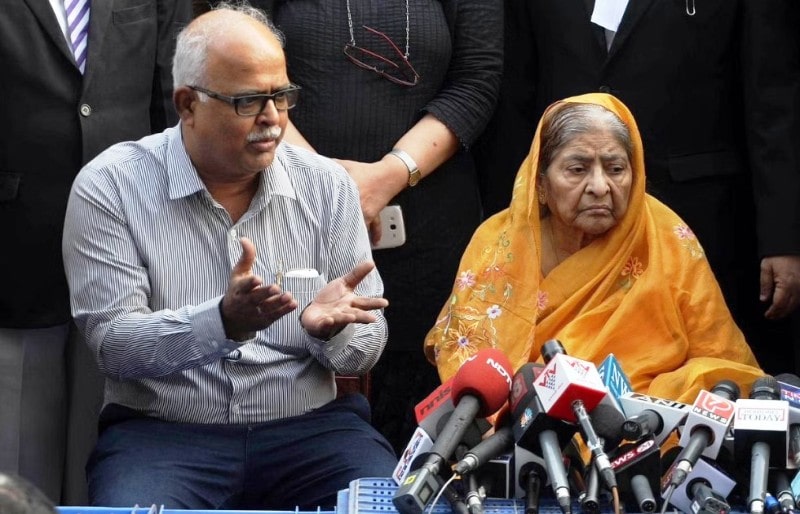 • Zubair Jafri (chief technical officer in a private firm in the US) 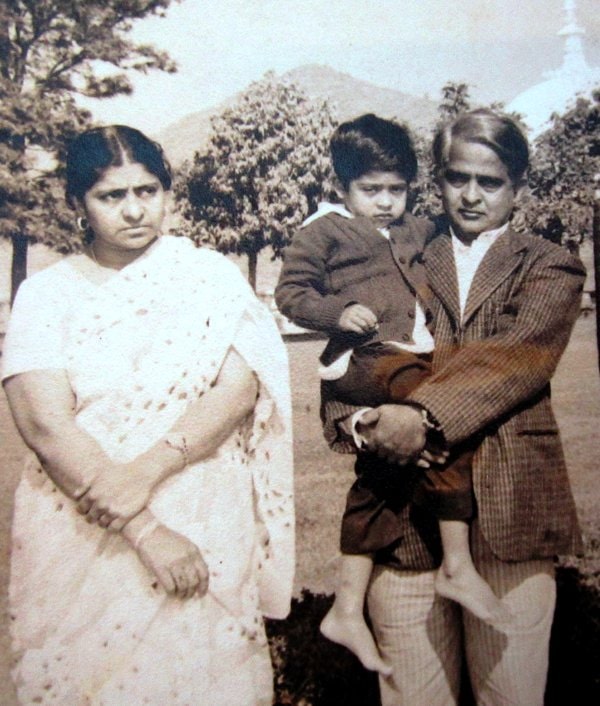 Daughter- • Nishrin Jafri Hussain (deputy manager at L&T) 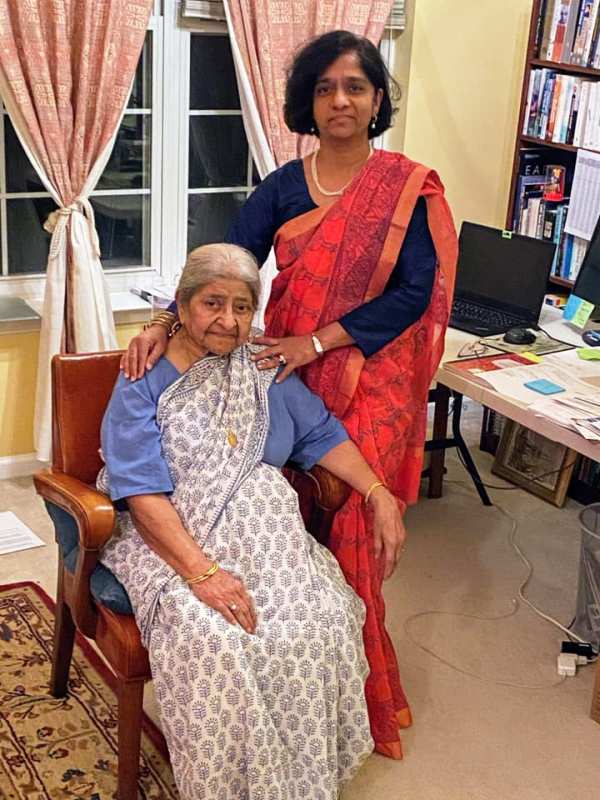 |
| Parents | Father- Name not known (farmer) Mother- Name not known |
Some Lesser Known Facts About Zakia Jafri
- Zakia Jafri is the wife of the Indian politician, Ehsan Jafri, who was a member of parliament of the Indian National Congress. She frequently made headlines for filing several affidavits against the Narendra Modi-led Gujarat government’s alleged role in fuelling the 2002 Gujarat riots.
- In 1969, Zakia Jafri’s home was burned by a mob due to an outbreak of communal riots in the Khandwa district of Madhya Pradesh. This forced Zakia to live in a refugee camp along with her family.
- After staying in the refugee camps for a few months, in 1971, Zakia Jafri decided to shift to Ahmedabad with her husband, Ehsan Jafri.
- On 27 February 2002, the S-6 coach of the Sabarmati Express was burned, which led to the death of 59 Hindus who were returning from a pilgrimage from Ayodhya to Gujarat. According to the Nanavati-Mehta Commission (NMC), established in 2002 by the Gujarat government to investigate the 2002 Gujarat riots, the train was set on fire by a mob of 1,000 to 2,000 Muslims. [2]NDTV Another report, submitted in 2002 by a committee, established by the central government, stated that the train was burned because of an accident. [3]Economic and Political Weekly The report was rejected by the Gujarat government in 2003 when the committee was held unconstitutional.
- After the burning of the train, there was a massive outbreak of communal violence throughout the state. On 28 February 2002, a mob, seeking vengeance for the killing of the Hindus, surrounded the Gulbarg Society’s compound in Ahmedabad with the intent of killing the society’s residents, who were mostly Muslims. This resulted in the residents fleeing to Ehsan Jafri’s bungalow in the society, seeking refuge from the angry mob.
- On 28 February 2002, at 9 am, the mob broke through the society’s perimeter walls and began attacking the residents. The mob even torched the bungalow of former MP Ehsan Jafri, which killed more than 69 people. Ehsan Jafri was dragged out of his house, and he was brutally lynched by the enraged mob. [4]The Wire Zakia Jafri, during the mob’s attack, hid on the first floor of her house, with her kids, as a result of which she was saved. [5]Rediff.com
- On 8 June 2006, Zakia Jafri filed her first petition in the Supreme Court, seeking justice for the victims of the Gulbarg Society massacre. The petition was filed jointly with Teesta Setalvad, R. B. Sreekumar, and Sanjiv Bhatt. In her petition, she levied a series of allegations against the then Chief Minister of Gujarat Narendra Modi, VHP leaders like Praveen Togadia and Jaideep Patel, and the then DGP of Gujarat P. C. Pandey. In her petition, she accused Narendra Modi and the Gujarat government of deliberately not taking any action against the rioters.
- In 2008, to investigate the matters related to the 2002 Gujarat riots, the Supreme Court constituted a Special Investigation Team (SIT) under the chairmanship of the then director of the Central Bureau of Investigation (CBI) R. K. Raghavan.
- Following its investigation, in 2010, the SIT submitted its report on the Gujarat riots to the Supreme Court. To examine the SIT’s report, the apex court, in 2010, appointed Raju Ramachandran as its amicus curiae (advisor to the court).
- In the same year, following his independent inquiry, Raju Ramachandran submitted his observations to the Supreme Court in which he pointed out several discrepancies in the SIT’s report. In 2011, the SIT rejected the amicus curiae’s observations and filed a closure report with the Supreme Court. [6]Deccan Herald
- The Supreme Court, upon finding no valid evidence, acquitted those accused of instigating the 2002 Gujarat riots, including Narendra Modi, on 10 April 2012.
- On 15 April 2013, Zakia Jafri, along with the social activist Teesta Setalvad, filed another PIL in the Supreme Court in which they requested the apex court to hand over the evidence collected by the SIT regarding the 2002 Gujarat riots. In 2013, the SIT filed a counter-petition in court. In its official statement, the SIT stated,
Teesta Setalvad and others have falsified the complaint targeting the chief minister who had never said that go and kill people. Their lawyer further submitted that the so-called incident of Chief Minister (Narendra Modi) giving instructions (in the meeting) to high-level police officers not to take action against the rioters is a sole creation of Teesta Setalvad. There is no evidence of the same and that Setalvad was not present during the incident.”
- The Supreme Court, on 17 June 2016, gave its judgement regarding Zakia Jafri’s 2006 plea. In 2006, a case was registered against 60 people for playing an active role in the Gulbarg Society massacre. In its verdict, out of the 60 accused, the Supreme Court acquitted 36 upon finding no conclusive evidence against them. The Supreme Court, while handing over the verdict to the 24 convicts, declared 28 February 2002 to be the “darkest day in the history of civil society of Gujarat.” Out of the 24 convicts, 11 were given life imprisonment, 12 were given a seven-year prison sentence, and one was given a ten-year prison sentence. Zakia Jafri, after the verdict, expressed her disappointment. In an interview, she said,
All the convicts were part of the same riot mob who committed the heinous crime and should have, equally, been sentenced to life imprisonment. Those acquitted earlier should also have been similarly brought to justice. I would consult her lawyers on the next course of action. The case has not ended for me. I will pursue the case against the acquitted. This is injustice. A person who did so much for the people, was cut and burnt on the streets. I cannot agree with this. I demand life imprisonment for every convict because everyone was present that day.” [7]The Hindu BusinessLine [8]The Quint
- On 13 November 2018, Zakia Jafri, Teesta Setalvad, former DGP of Gujarat R. B. Sreekumar, and ex-IPS officer Sanjiv Bhatt filed a joint petition in the Supreme Court against the clean chit given by the SIT to Prime Minister Narendra Modi and others. The Supreme Court, in June 2022, delivered its judgement on the PIL. It not only quashed the joint litigation but also stated that Teesta, Bhatt, and Sreekumar had played with the emotions of the 2002 Gujarat riots victim, Zakia Jafri. The court further stated that the trio had taken advantage of Zakia’s emotions for their own profit. The apex court, in its judgement, stated,
Teesta and others have been vindictively persecuting this lie for their ulterior design by exploiting the emotions and sentiments of Zakia Jafri. The proceedings have been pursued for the last 16 years to keep the pot boiling, for ulterior design. All those involved in such abuse of process need to be in dock and proceeded with in accordance with law. The appeal against 2012 decision of the court is with malafide intent and under the dictation of someone. The falsity of their claims had been fully exposed by the SIT after a thorough investigation.” [9]LawBeat [10]The Indian Express
- Every year, on 28 February, Zakia Jafri pays a visit to her old bungalow in the Gulbarg Society, which was burned by the rioters during the 2002 Gujarat riots.
- In July 2022, more than 90 former civil servants and civil rights activists urged the Supreme Court to withdraw and review its judgement given in June 2022. [11]The Wire
References/Sources:

